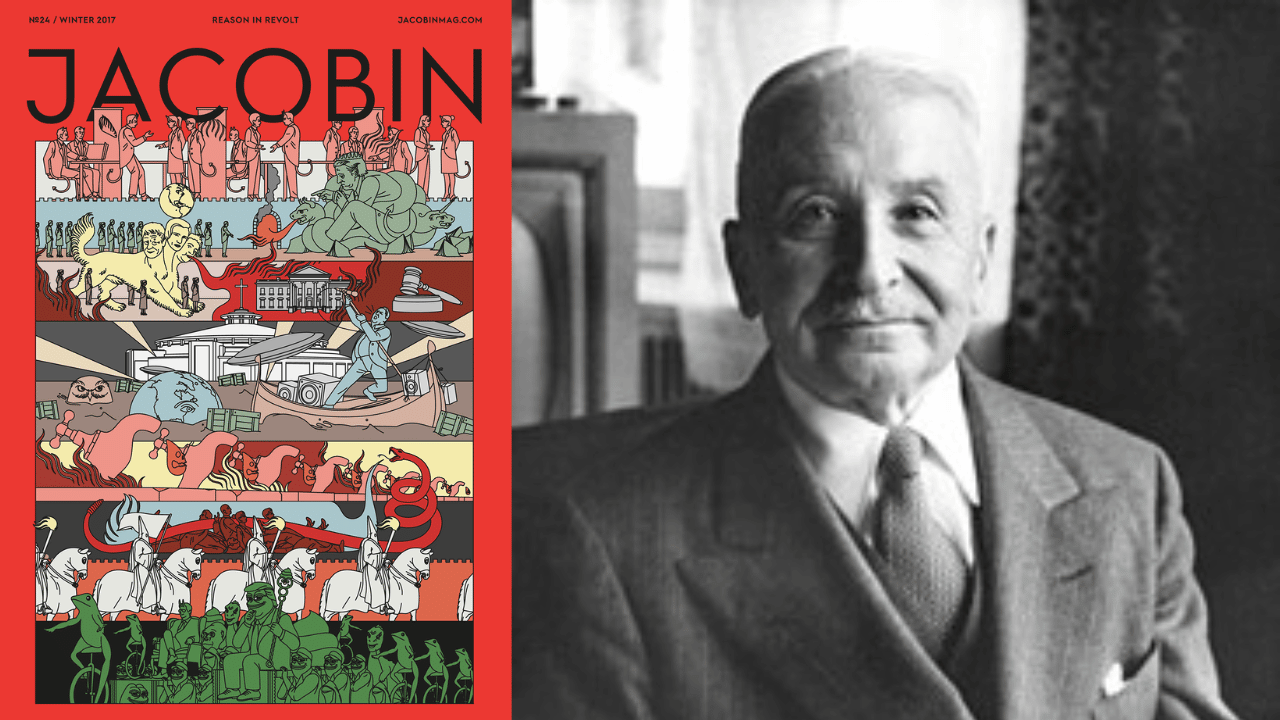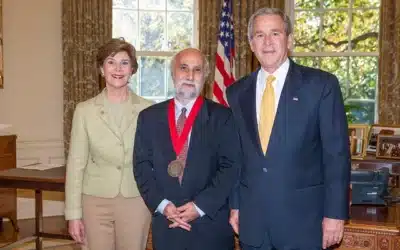Five important criticisms are made of Ludwig von Mises in the recent Jacobin article titled, Ludwig von Mises Was a Free Market Ideologue, Not a Hardheaded Thinker.
- Mises was an ideologue
- Mises supported workers “bowing” to capitalist masters
- Lack of support for universal voting proves Mises was opposed to empiricism
- Nordic countries and the UK’s NHS prove that statism is preferable to free markets
- Mises supported imperialism
For a full refutation see the video linked below, in short:
- The Misesian ideology can be summarized as: Decriminalize all economic activity between consenting adults. There is nothing wrong with being ideological. If one claims to be inherently opposed to: Racism, sexism, xenophobia, classism, terrorism, kidnapping, rape, murder, or assault, they are in effect making an ideological statement not a scientific one. They don’t say, “Let’s try racism and sexism then run tests to see if it worked.” They make an unapologetic principled claim. Yes he was ideological, and there is nothing wrong with being so. Of course Mises also used real world examples in his work, both comparing countries which are more and less economically free, as well as whether or not people with the lowest incomes benefit from free market exchanges by having an increase in accessibility to products and services overtime.
- In Planning for Freedom, Mises explains how real (adjusted for inflation) wages rise as the result or worker productivity and competition between employers. No useful idiot of the “bosses” would tell the working masses how to increase their leverage. Are the “capitalist masters” also hoping they’ll have to compete for good workers and return customers? If anything big business loves regulations which keep out competitors and a steady stream of subsidies which allow them to acquire money without having to meet consumer demand.
- With regard to economics, politics, philosophy, foreign policy, civics, and history- the average voter knows almost nothing. Getting more ignorant people to vote on how planes and computers are made will not improve planes or computers and we’d all be worse off. So it’s no surprise that while Mises was an advocate of representative democracy, he did not frequently stress the value of mass voting.
- “There’s plenty to say regarding Sweden: (1) its “socialist” policies were made possible by wealth created under an essentially capitalist economy (as recently as the 1950s, remember, government spent less as a percentage of GDP in Sweden than in the U.S.); (2) Swedes earn about 50 percent more in the U.S., in our supposedly wicked economy; and (3) since Sweden’s explosion of social welfare spending there have been zero jobs created on net in the private sector.” – Thomas E. Woods Jr., Ph.d., (Forward to Socialism Sucks). The Jacobin author does not mention that all Nordic countries rank higher than America on the Fraser Freedom Index. Nor does he compare North Korea and South Korea or East Germany and West Germany. Nor does he compare states in America with similar populations to Nordic countries such as Massachusetts. Nor does he control for age, educational degree, gender, levels of innovation, difficulty of low skilled employees getting their foot in the door or starting a competing firm. Nor does he compare more regulated/subsidized industries to less regulated/subsidized industries.
- Those who believe Washington D.C. has the right to control Texas, Florida, Arizona, Nebraska, and Kansas are true imperialists. All the regulatory agencies that Jacobin’s support literally are imperialist, i.e. one group arbitrarily imposing its will on another through coercion. As for Mises:
A nation, therefore, has no right to say to a province: You belong to me, I want to take you. A province consists of its inhabitants. If anybody has a right to be heard in this case it is these inhabitants. Boundary disputes should be settled by plebiscite.
Mises, Omnipotent Government, p. 90
To the princely principle of subjecting just as much land as obtainable to one’s own rule, the doctrine of freedom opposes the principle of the right of self-determination of peoples, which follows necessarily from the principle of the rights of man. No people and no part of a people shall be held against its will in a political association that it does not want.
Mises, Nation, State, and Economy, p. 34
The right of self-determination in regard to the question of membership in a state thus means: whenever the inhabitants of a particular territory, whether it be a single village, a whole district, or a series of adjacent districts, make it known, by a freely conducted plebiscite, that they no longer wish to remain united to the state to which they belong at the time, but wish either to form an independent state or to attach themselves to some other state, their wishes are to be respected and complied with.
This is the only feasible and effective way of preventing revolutions and civil and international wars.
Mises, Liberalism, p. 109
Podcast: Play in new window | Download

































